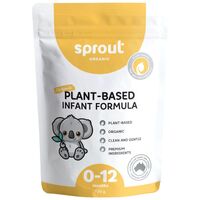Organic
Imagine if we could be absolutely sure of our food, it we could know that it was free of chemicals, additives, pesticides, antibiotics and hormones. Imagine if we knew that our food hadn’t been genetically modified or zapped by irradiation. Imagine if we knew farmers were using their land sustainably and encouraging bio-diversity. Imagine if scientists had found that our food didn’t contribute to cancer, heart disease or diabetes. Imagine if this food tasted so fresh and delicious that it made all other food seem plastic?
Well, this food does exist, and it exists now. It’s called organic and biodynamic food, and there’s nothing else quite like it.
.png)
What does organic mean
In a nutshell, organic food is food as it’s supposed to be.
Organic food is grown as close to nature as possible. It is uncontaminated by synthetic chemicals which helps to keep people and the environment healthy.
Organic farming uses environmentally sustainable ways of food production, like taking care that the soil keeps its nutrients and is fertilised with natural products. Pests, weeds and fungi are treated with natural processes and no synthetic chemicals or antibiotics are used at all. Genetically modified organisms (GMOs) are strictly banned. When the food is processed, it is kept natural without additives, irradiation or chemicals.
What are the health benefits of eating organic
The benefits of eating organic are better health and less disease, which seems logical when the food has not been treated with pesticides, fertilisers, chemicals, additives or preservatives. The cumulative effect of taking in a cocktail of pesticide residues has been linked to decreased fertility, breast cancers, immune system problems and nervous system problems like Parkinson’s disease.
Various studies have found that organic food has higher levels of anti-oxidants, flavonoids (found in plants which help regulate allergens, carcinogens and viruses), omega-3, vitamin C and nutrients like iron, magnesium and phosphorus.
Organic fruit and vegetables are generally fresh and has been sourced locally. It tastes better and has more nutrients because it’s fresh and hasn’t been sitting in cold storage for up to a year like some commercially-produced food.

How can I be sure I’m eating organic
It is illegal to label a food as organic when it’s not. There are different ways that organic can be labelled, and this depends on the amount of organic ingredients in the product. The National Organic Standard in Australia sets the percentages. There are four ways produce can be labelled:
- ‘100% Organic’ or ‘100% Bio-dynamic’ are products completely grown and harvested organically or bio-dynamically;
- ‘Organic’ or ‘Bio-dynamic’ are products with at least 95 per cent of its ingredients being organic or bio-dynamic, and the remaining percentage must be naturally sourced;
- ‘Made with Organic Ingredients’ or ‘Made with Bio-dynamic Ingredients’ must have at least 70 per cent of its ingredients organic or bio-dynamic, and the remaining percentage must be naturally sourced;
- Products that have less than 70 per cent organic ingredients can state that the individual ingredient is organic in the ingredients list.
What is certified organic
To be sure you’re eating certified organic in Australia can be a little confusing because there are seven different certifying organisations. They are all run through the Australian Quarantine and Inspection Service (AQIS) who verify if the organic food is certified (from one of the seven certifiers) so that it can be exported. There is no national regulation for organic certification, so AQIS serves as the de-facto benchmark.
The main certifying organisations, all AQIS approved, include:
Australian Certified Organic is the largest certified organic company in Australia. Over 80 per cent of all certified organic products on the market are certified by them. Their distinctive ‘bud’ logo is instantly recognisable and trusted. They are aligned with the Biological Farmers of Australia, an organisation who educates the public and lobbies politicians about the benefits of organics.
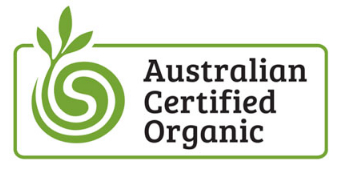
Bio-Dynamic Research Institute use the Demeter trademark symbol on their certified foods. They have been around since 1957 and began as a guild of farmers who mentored each other on how to farm bio-dynamically. They only certify bio-dynamic food.


National Association for Sustainable Agriculture, Australia (NASAA) began in 1986. They are Australia's second biggest organic certifier, providing certification services to operators within Australia and internationally. They are particularly focused on opening up organic food for export to the overseas market, mainly the US.
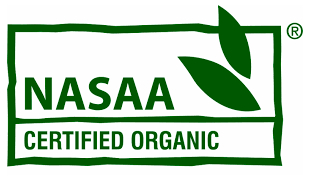
At times, the organic certification process and all the different logos can be confusing. The system may soon be about to change as the Organic Federation of Australia works on a national organic logo and standard for the whole country. There is information about this at www.oga.org.au with a link on the homepage to more information about the National Organic Mark.
In regards to imported products which mostly relates to organic packaged foods, there are a range of international organic logos. You can find the most common ones below:
New Zealand Bio Grow
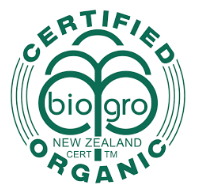
Soil Association UK
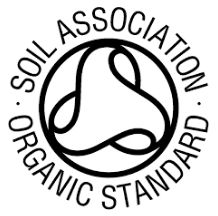
European Commission

US Department of Agriculture
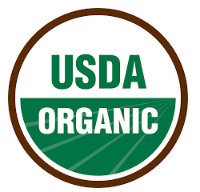
Japan JAS Organic

What is Bio-dynamic
Bio-dynamic farming is often called organic plus. It is similar to organic farming in that it doesn’t use pesticides, chemicals or synthetic products, however, it views the land as a unified whole and that all animals, plants, humans and organisms work with each other. It began in 1924 by Rudolf Steiner, and uses a more astrological, cosmic focus than organic farming, for instance, with plantings done on days that coincide with phases of the moon.
What are the environmental benefits
Organic farming knows that healthy soil creates healthy food that creates healthy people. To keep the soil healthy, it must be rotated, and green manure, compost and natural minerals used as fertilisers. Organic farming prevents soil erosion so that soil is more fertile and retains its nutrients.
Pest control must be through natural methods of crop rotation and planting, and natural insecticides. Our waterways, oceans and groundwater are not polluted with chemical run-off and seepage. Looking after the soil means that organic crops need less water because they can better soak up the moisture.
Also, there is less carbon released into the atmosphere because organic practices mean than carbon is stored in the soil.
On organic farms, some of the property must be used to encourage native wildlife and animals. This encourages bio-diversity where different birds, animals and plants can interact with each other and keep the gene pool wide.
As part of organic values, organically farmed animals are treated with respect and live (and die) humanely. They aren’t fed with genetically modified food, or given any hormones or treated with antibiotics.
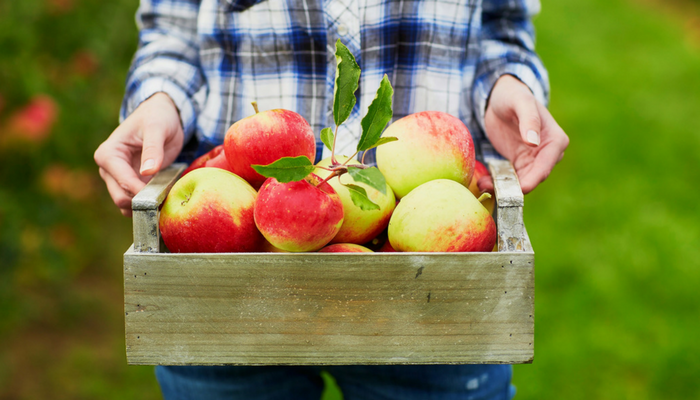
For more information:
- Australian Organic (Formerly Biological Farmers of Australia) have been around since 1988. They have been using the Bud logo to certify organic foods since 2001 and have been a major force in ensuring that organic standards in Australia are maintained. Go to: http://www.austorganic.com/
- The NASAA’s website: www.nasaa.com.au/
- The Organic Federation of Australia: www.ofa.org.au/
- For brief summaries and links of the full articles of studies that have found multiple health benefits in eating organic, go to: www.ota.com/organic/benefits/nutrition.html
- The Organic Center’s report called ‘The Nutritional Superiority of Organic Foods’ gives a run-down of why there have been so many flawed studies that have found organic food to be as nutritious as conventionally-produced food: www.organic-center.org/reportfiles/5367_Nutrient_Content_SSR_FINAL_V2.pdf


